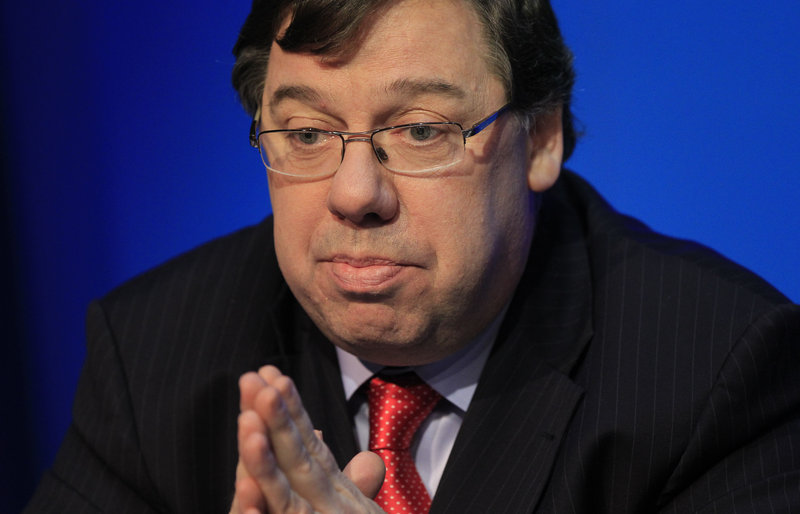BRUSSELS – European Union nations agreed to give $89.4 billion in bailout loans to Ireland on Sunday to help the debt-struck country weather its banking crisis, and sketched out new rules for future emergencies in an effort to restore faith in the euro currency.
The rescue deal, approved by finance ministers at an emergency meeting in Brussels, means two of the eurozone’s 16 nations have now come to depend on foreign help and underscores Europe’s struggle to contain its spreading debt crisis. The fear is that with Greece and now Ireland shored up, speculative traders will target the bloc’s other weak fiscal links, particularly Portugal.
In Dublin, Irish Prime Minister Brian Cowen said his country will take 10 billion immediately to boost the capital reserves of its state-backed banks, whose massive bad loans were picked up by the Irish government but have become too much to handle. Another 25 billion will remain in reserve, earmarked for the banks.
The rest of the loans will be used to cover Ireland’s deficits for the coming four years. EU chiefs also gave Ireland an extra year, until 2015, to reduce its annual deficits to 3 percent of GDP, the eurozone limit. The deficit now stands at a modern European record of 32 percent because of the runaway costs of its bank-bailout program.
Cowen said the accord, reached after two weeks of tense negotiations in Brussels and Dublin to fathom the true depth of the country’s cash crisis, “provides Ireland with vital time and space to successfully and conclusively address the unprecedented problems that we’ve been dealing with since this global economic crisis began.”
However, in a surprise accounting move, European and IMF experts decided that Ireland first must run down its own cash stockpile and deploy its previously off-limits pension reserves in the bailout. Until now Irish and EU law had made it illegal for Ireland to use its pension fund to cover current expenditures. This move means Ireland will contribute 17.5 billion to its own salvation.
Cowen said interest rates on the loans, with terms ranging from three years to 7½ years, would average 5.83 percent — higher than the 5.2 percent being paid by Greece for its own May bailout.
But the embattled prime minister told a nighttime press conference that Ireland had no choice, because international investors had decided that lending to Ireland was too risky and were demanding unreasonable returns. The yield on 10-year Irish bonds rose Friday to a euro-era high of 9.2 percent.
When asked if Ireland could afford the repayments on its new EU-IMF debts, Cowen said Ireland couldn’t afford not to take this aid.
“If we didn’t have this program, we would have to go back to the markets, which as you know are at prohibitive rates,” Cowen said. “We would pay far more.”
Send questions/comments to the editors.



Success. Please wait for the page to reload. If the page does not reload within 5 seconds, please refresh the page.
Enter your email and password to access comments.
Hi, to comment on stories you must . This profile is in addition to your subscription and website login.
Already have a commenting profile? .
Invalid username/password.
Please check your email to confirm and complete your registration.
Only subscribers are eligible to post comments. Please subscribe or login first for digital access. Here’s why.
Use the form below to reset your password. When you've submitted your account email, we will send an email with a reset code.